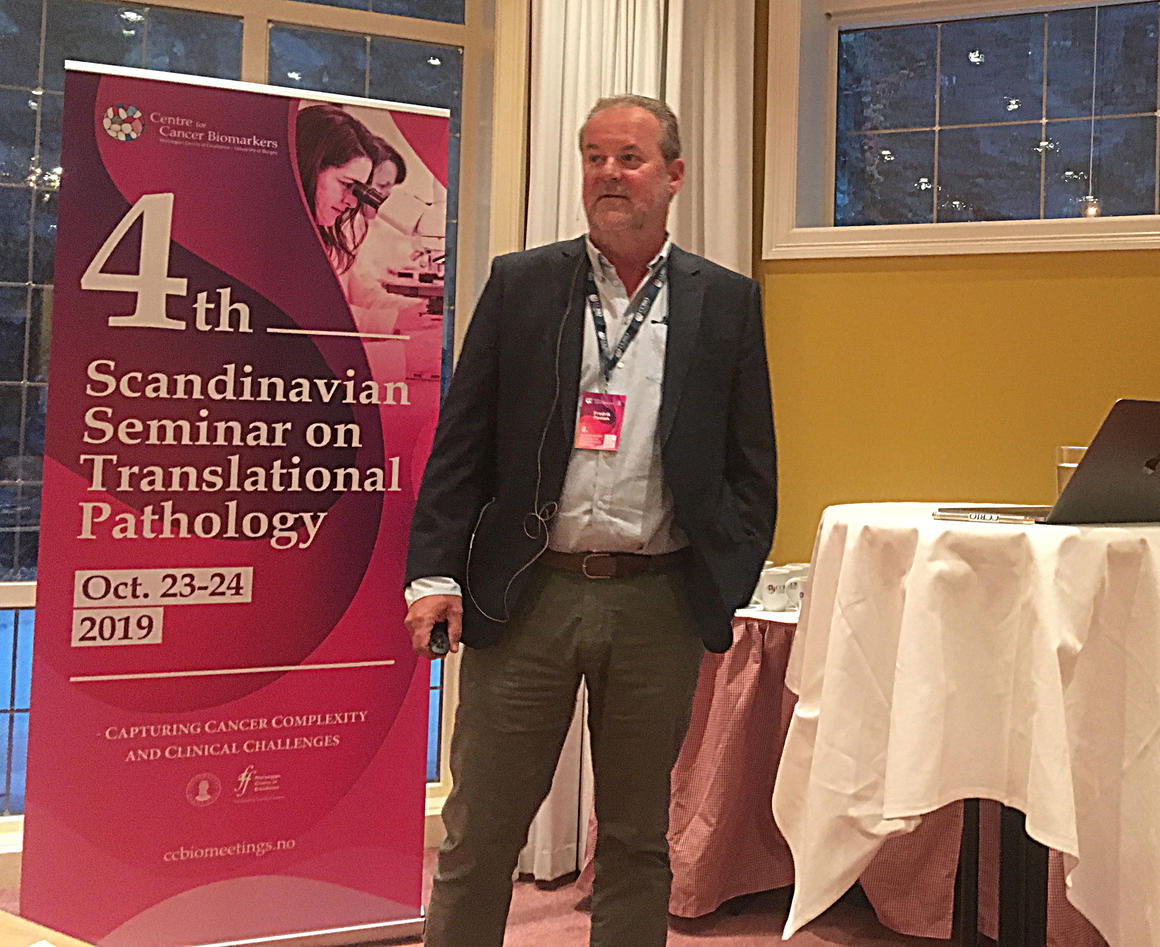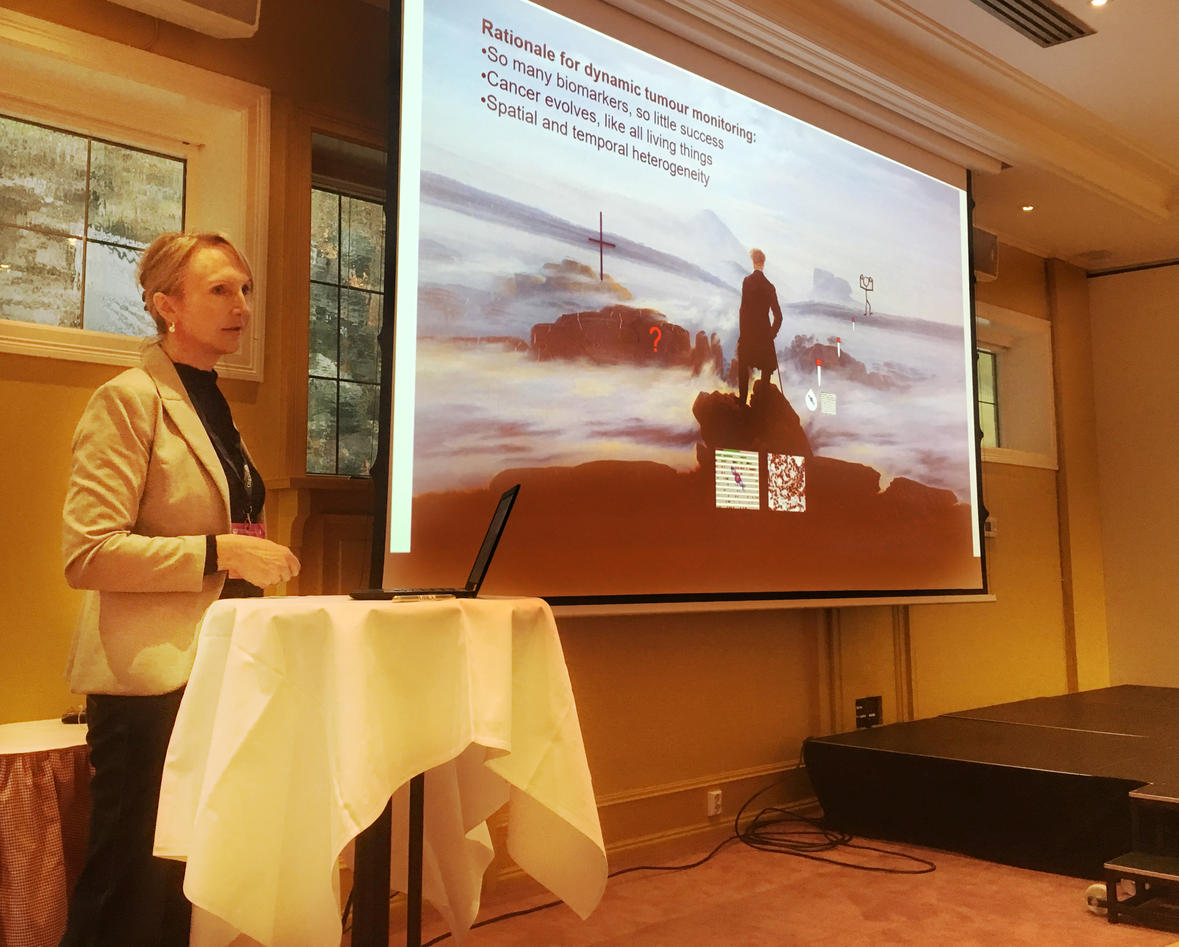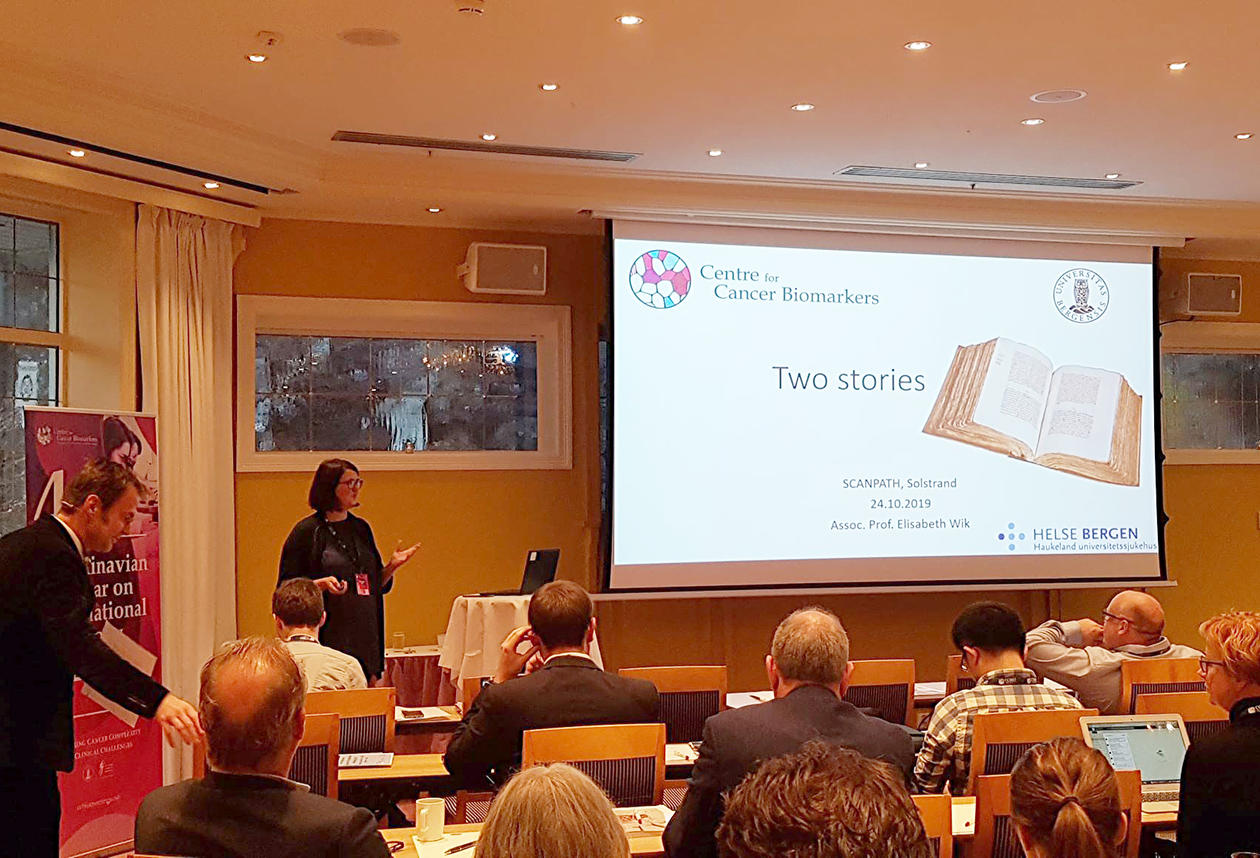Nordic updates and networking in translational pathology
CCBIO hosted the 4th Annual Scandinavian Seminar on Translational Pathology at Solstrand Hotel, Os (Bergen), with 78 dedicated participants from Norway, Sweden and Finland.

Main content
Annual forum
SCANPATH is an annual network meeting for Scandinavian tumor pathologists and pre-clinical scientists with an interest in the prospects of next generation tissue profiling. The aim is to stimulate tissue-based studies of tumor mechanisms and biomarker mapping. This meeting was initiated by CCBIO in 2016 and it has been a success since the startup. SCANPATH is now a well established annual forum.
Comprehensive program
The scientific program of this year's Translational Pathology Seminar was filled with inspirational and educational presentations, and included internationally renowned researchers.
Among other, Fredrik Pontén provided an update to the Human Protein Atlas, and their continued efforts to characterize the human proteome. Karin Jirström gave us her thoughts on the future of pathology, emphasizing the emerging need for pathologists in therapy decisions. Teijo Pellinen demonstrated intriguing methods for characterizing the cancer microenvironment by multiplex immunofluorescence, and Elisabeth Wik presented two interconnected stories about nerve infiltration in breast cancer, and breast cancer in the young.
The program also gave room for several local PhD-students to present their inspiring work, including Astrid Børretzen, Cecilie Askeland, Hilde Engerud and Anna Sæle.
See the complete program here.
Moreover, the participants enjoyed an informal and highly engaging “Posters & Prosecco”-session with 14 attending posters and industry presentations.
Hubble approach
CCBIO Director Lars A. Akslen finds that this year's Translational Pathology Seminar was a very stimulating meeting with a firm focus on spatial resolution and attempts to integrate tissue context with various omics data.
“Some of the presentations and recent developments in morphology based techniques, such as imaging mass cytometry, reminds me of the excitement at the time when the Hubble telescope was introduced in modern cosmology. We need to continue our “Hubble approach” in studies of tissue landscapes in tumors and other diseases”, Akslen concludes.
We look forward to next year’s seminar, which will be held in Lund, Sweden, November 27-28, 2020.


